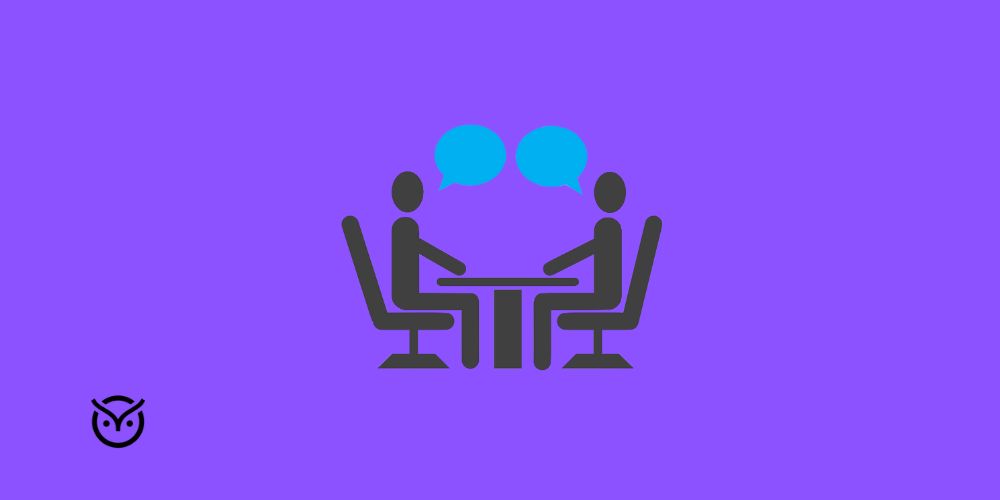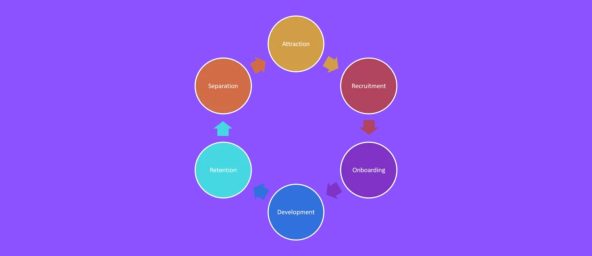
TL;DR
- Behavioural interview questions reveal how candidates act in real situations.
- Soft skills matter because they shape teamwork, communication, and problem-solving.
- Asking the right questions helps find people who fit the role and the culture.
- Use simple scoring steps to compare answers fairly.
- A structured interview process improves hiring accuracy.
Many hiring teams struggle to understand how a person will behave once they join the job. Resumes show tasks, but they do not show how candidates handle stress, teamwork, conflict, or mistakes. This gap leads to hiring the wrong people, slow performance, and early turnover. This is why behavioral interview questions play such an important role in modern hiring.
The good news is that once companies learn how to use behavioural interview questions correctly, they understand soft skills more clearly. In this blog, you will learn what soft skills really are, why they matter, and which 30 behavioural questions reveal them best. You will also learn simple steps to score responses fairly so you can choose the right person with confidence.
What Are Soft Skills
Soft skills are the personal qualities that shape how someone works, communicates, and solves problems. They are not tied to a single task. Instead, they influence how a person behaves across different situations. People often search for which is an example of a soft skill RBT, and the answer includes things like communication, empathy, patience, and teamwork.
Soft skills include:
• Communication
• Teamwork
• Problem solving
• Adaptability
• Conflict resolution
• Time management
• Leadership
• Emotional awareness
The question what is behavioural interview comes up often because these interviews help uncover these exact qualities. Soft skills cannot be measured by a written test alone. They show up in real stories from past experiences.
A report from the World Economic Forum emphasizes the increasing importance of soft skills, if not more than technical ability. This shows why hiring teams rely heavily on behavioural interview questions to check these skills.
Why Soft Skills Are Important
Soft skills affect performance more than most teams realize. Even if a candidate knows the technical work, they may struggle if they cannot communicate, handle feedback, or work with others. People also ask what is behavioral-based interviewing. These interviews help uncover soft skills through real examples instead of theory.
According to research, companies that consistently invest in soft skills over time will experience measurable improvements in workplace efficiency, employee engagement, and overall business performance.
Soft skills matter because they:
• Support teamwork
• Reduce conflict
• Improve customer interactions
• Help employees learn faster
• Build a stronger work culture
Strong soft skills lead to better decisions and more stable performance. This is why behavioral interview questions are so valuable during hiring.
30 Behavioural Interview Questions to Assess Soft Skills
Below are 30 behavioral interview questions grouped by soft skill. These help you understand how a person acted in past situations, which is the core of what are behavioral interview questions.
Communication
- Tell me about a time you had to explain something complicated to someone.
- Describe a moment when miscommunication caused a problem and how you fixed it.
- Share an example of when you had to adjust your communication style for someone.
Teamwork
- Describe a situation where you supported a coworker who was struggling.
- Tell me about a group project where you played a key role.
- Share a time when you disagreed with a teammate and how you resolved it.
Problem Solving
- Tell me about a problem you solved without being asked.
- Describe a time when you had limited information but still had to decide.
- Share an example of when a solution you tried did not work, and what you did next.
Adaptability
- Tell me about a time you had to adjust to a big change quickly.
- Describe a situation where you had to learn something new under pressure.
- Share a moment when you had to switch tasks suddenly.
Leadership
- Describe a moment when you took the lead without being assigned.
- Tell me about someone you coached or trained successfully.
- Share a situation where you had to motivate others.
Conflict Resolution
- Tell me about a conflict at work and how you managed it.
- Describe a moment when you had to deliver difficult feedback.
- Share a time when you helped resolve a disagreement between two others.
Work Ethic
- Tell me about a time you went above your normal duties.
- Describe when you worked under tight deadlines.
- Share a moment when you had to stay disciplined during a boring or tough task.
Time Management
- Share an example of when you managed multiple deadlines.
- Tell me about a time when you had to prioritize tasks quickly.
- Describe a moment when poor time management affected your work and what you changed.
Customer Interaction
- Tell me about a tough customer situation you handled well.
- Share a moment when you turned a negative customer experience into a positive one.
- Describe a time when you had to stay calm under pressure.
Collaboration & Accountability
- Tell me about a time when you took responsibility for a mistake.
- Describe a project where collaboration made the work better.
- Share how you handled feedback that you did not agree with.
These questions also help answer what are some behavioural interview questions for beginners who want to learn how interviews work.
Best Practices for Evaluating Soft Skills Responses
Many people ask how to answer behavioural interview questions or how to prepare for behavioural interviews. Some candidates strengthen their approach by reviewing interview preparation methods. The same steps also help interviewers score answers.
Here are the best practices:
1. Use the STAR pattern
Candidates answer stronger when they share:
• Situation
• Task
• Action
• Result
It shows how many behavioural questions are asked in an interview and how each one helps build the full picture.
2. Score based on behaviors, not storytelling
The answer should show:
• Clear actions
• Real choices
• How the person handled pressure
• What they learned
3. Look for ownership
A strong answer focuses on what they did, not what the team did.
4. Allow time to think
Many hiring teams ask should I allow a candidate to take time to think before answering. The answer is yes. Thinking leads to clearer responses.
5. Compare answers fairly
Use the same scoring sheet for each candidate to avoid bias.
6. Notice collaboration and emotional control
These are major soft skills. You can check them through how to answer collaboration interview questions. You can also understand these traits by comparing them with patterns often discussed in early-stage screening questions.
7. Ask follow-ups
This helps check depth and honesty. A study noted that structured behavioural interviews are twice as effective as unstructured ones. This supports the value of knowing what is behavioural questions in the interview and how to prep for behavioural interview sessions.
Candidates can also improve their approach by reviewing etiquette insights similar to those explained in workplace interview behaviour.
Conclusion
Behavioural interview questions help companies understand how candidates think, act, and respond to real challenges. Soft skills matter just as much as technical skills because they shape teamwork, communication, and long-term performance. When you use structured questions and a simple scoring method, hiring becomes clearer and more accurate.
By using these 30 questions, you can build stronger interviews, reduce guesswork, and choose people who work well with others. Soft skills are the qualities that help people grow, adapt, and stay productive, which is why they should be at the heart of every interview.
FAQs
Q1. How long should a candidate’s answer be to a behavioural question
Most behavioural answers should be 60 to 90 seconds. This gives enough detail without becoming too long or unclear.
Q2. Can behavioural questions be illegal
Yes. If the question touches protected characteristics such as age, health, family, or personal background, it becomes unsafe. Always focus on workplace behavior only.
Q3. Which soft skill is most important for entry-level jobs
Communication and willingness to learn are usually the top soft skills for beginners.
Q4. What is the hardest behavioural interview question
Questions about conflict or personal mistakes are often the hardest because they require honest reflection.
Q5. Should I allow a candidate to take time before answering
Yes. Giving a moment to think leads to clearer and more meaningful answers.




